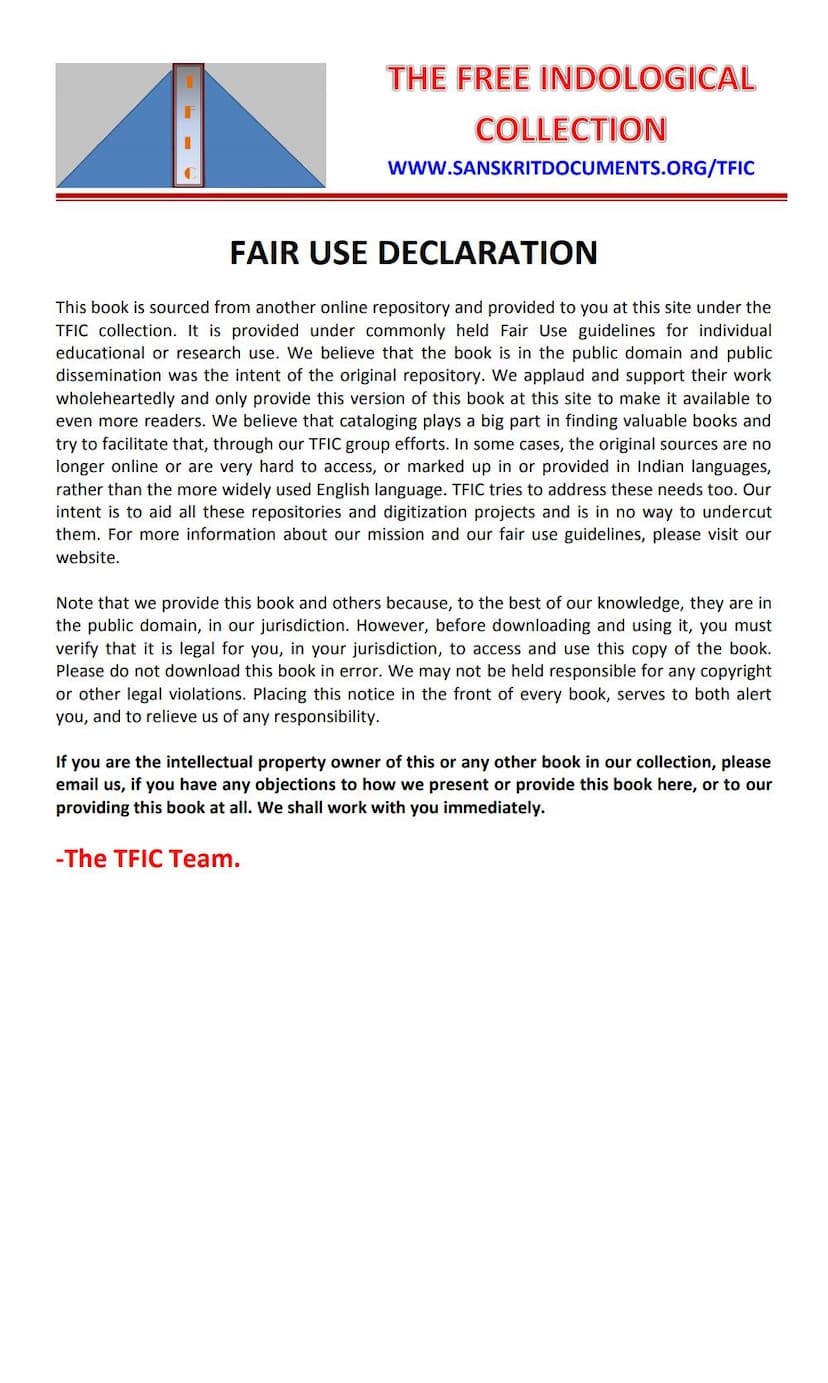Jainpad Sangraha 02
Added to library: September 2, 2025

Summary
This document is the second part of "Jainpad Sangraha," compiled by Pandit Bhagchandraji and published by Jain Granth Ratnakar Karyalaya in Mumbai. The title page indicates it is the third edition.
The text is a collection of devotional songs, hymns, and philosophical verses in Hindi, primarily composed or compiled by Pandit Bhagchandraji. These compositions are set to various musical rāgas (melodies), such as Bhairav, Prabhati, Sorath, Sarang, Malhar, Kalingada, and others, indicated by the titles before each section.
The core themes and content revolve around Jainism, focusing on:
- The Nature of the Soul (Ātman): Many verses explore the true nature of the soul as pure consciousness, knowledge, and bliss, distinct from the physical body and worldly attachments. They emphasize the soul's inherent purity and the illusion of suffering caused by external factors and internal passions.
- The Path to Liberation (Moksha): The text outlines the Jain path to liberation, which involves right faith (samyak darshan), right knowledge (samyak gyan), and right conduct (samyak charitra), often referred to as the three jewels (ratnatraya). It highlights the importance of detachment, non-violence (ahimsa), asceticism (tapas), and meditation (dhyana).
- Detachment from Worldly Affairs: There's a recurring emphasis on renouncing worldly possessions, desires, and attachments, viewing them as temporary and ultimately a source of suffering. This includes advice to detach from wealth, family, and sensual pleasures.
- The Qualities of Tirthankaras and Jain Monks: The verses praise the virtues of the Tirthankaras (spiritual guides) and Jain monks, describing their purity, wisdom, detachment, and their role in guiding beings towards liberation. Specific references are made to figures like Lord Mahavir and Shreyansakumar.
- Critique of Other Religious Practices: Some sections, particularly the one in Rag Dumri, critically examine the iconography and practices of other religious traditions, contrasting them with the perceived purity and enlightenment of the Arihants (Jain perfected beings).
- The Importance of Jain Principles: The text underscores the significance of core Jain principles like right belief (samkit), non-attachment, control of passions (kashayas), and adherence to the teachings of the Jain Tirthankaras.
- Devotional Expression: The songs are expressions of devotion and surrender to the Jain Tirthankaras and spiritual teachers, seeking their guidance and blessings for spiritual progress.
Key elements and style:
- Poetic and Melodic: The verses are structured in a poetic format, often with a refrain or "tek" (hook) line, and are intended to be sung to specific ragas. This makes the philosophical and devotional content accessible and engaging.
- Didactic and Inspirational: The author aims to educate and inspire the reader towards a spiritual life, urging them to abandon delusion and embrace the path of righteousness.
- Use of Metaphors and Analogies: Common metaphors include the soul as a lotus unstained by mud, the body as a temporary dwelling, and worldly desires as a consuming fire.
- Attribution to Bhagchandraji: Many verses conclude with the name "Bhagchandra" (or a similar attribution), indicating his authorship or compilation.
In essence, "Jainpad Sangraha 02" is a devotional and philosophical collection that aims to guide Jains towards spiritual realization by elaborating on the core tenets of Jainism, emphasizing self-discipline, detachment, and devotion to the Tirthankaras.